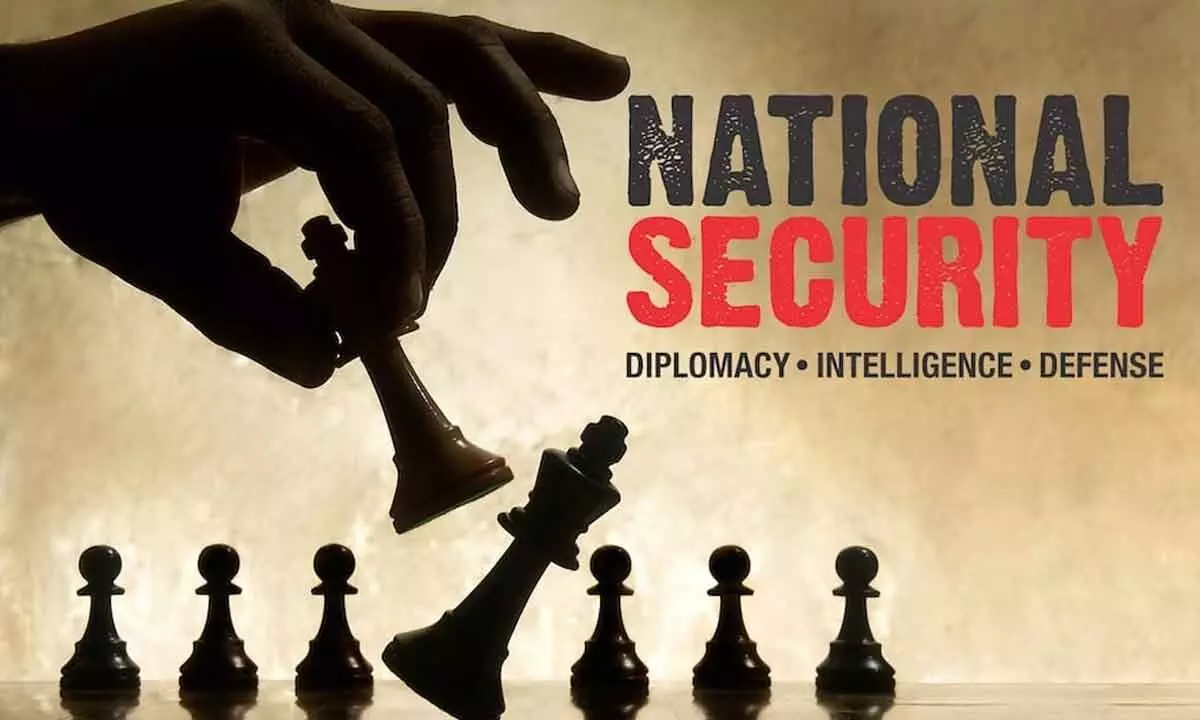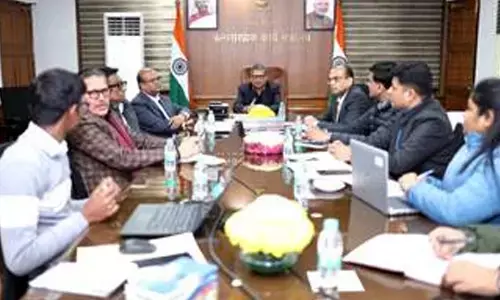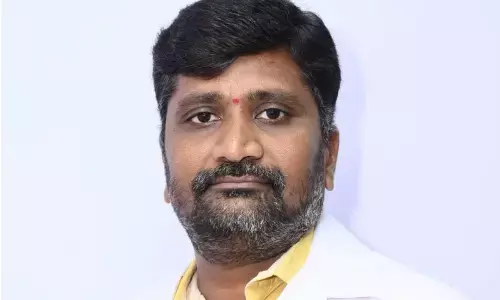Not all of national security frame needs to be public

The demand for declaration of a NSS has been voiced in many circles – many freelance strategic analysts have been pressing for it in particular – but the issue here basically is one of understanding the reality that there is a difference between publicly announcing the defence and security infrastructure built up by the country and not letting the adversaries know what counter-measures India is envisaging to deal with them
The demand for a declared National Security Strategy (NSS) is rightly a matter of public debate and open analysis by strategic experts.
The security scenario has a large variable component in today’s world and it is accepted that the life of long-range security assessments itself had generally been shortened.
There is open agreement on a number of initiatives that are to be taken to serve the cause of national security such as promotion of public education that is designed to spread an awareness among the citizens that they all have a contribution to make for safeguarding national security in a democratic dispensation where the state considered itself responsible for the security of people as well.
The validity of many publicly known concepts like ‘national security being inseparable from economic security’, the threat to cyber security and cyber data running through the lifelines of the country and open warfare giving way to ‘proxy wars’ in this new era is now well established and this has created new paradigms for framing the national security strategy.
Many components of this strategy – both in terms of the inputs on which it was formulated and the appropriate responses it deemed necessary – would have to be treated as ‘protected information’ to be kept from the prying eyes of the adversary.
An evaluation of who the ‘friends and enemies’ are in the present and for the future, would itself be an assessment that the government would like to keep to itself notwithstanding the stand that might be taken by it in public – for reasons of being politically correct.
Demographic situation is relevant to the broader issue of national security in the sense that it determines the potential strength of the country for the future. Two-thirds of India’s population is below 35 years and this gives this country a strategic advantage over China that has an aging population. The NSS may declare plans of how the country would rally the youth for serving the cause of national security.
Finally, since economic security would be strengthened by the success achieved by diplomacy in working out trade pacts with other friendly and economically strong countries, the crucial role of diplomatic power in enhancing national security on that count alone, should find a prominent mention in the NSS.
Today’s national security set up evolved over a period – particularly since the ‘Kargil war’ that had resulted from Pakistan’s attempt to surreptitiously infiltrate army personnel with Islamic militants on the high mountains of Ladakh and occupy a couple of peaks in Drass sector in May 1999 – ought to be defined in the NSS document.
The functions of national intelligence agencies, including Intelligence Bureau, Research and Analysis Wing, and National Technical Research Organisation, can be broadly explained and also the supporting National Security Council Secretariat (NSCS) headed by National Security Advisor (NSA), presented in some detail. NSCS had the responsibility of ensuring that threats to national security were constantly studied and analysed and the framework of coordinated responses to deal with them was laid down -- covering the spheres of military, internal governance and diplomacy.
The demand for declaration of a NSS has been voiced in many circles – many freelance strategic analysts have been pressing for it in particular – but the issue here basically is one of understanding the reality that there is a difference between publicly announcing the defence and security infrastructure built up by the country and not letting the adversaries know what counter-measures India is envisaging to deal with them.
The spectrum of hostile forces facing the nation itself was not static and the rise of the era of ‘proxy wars’ had further added to the importance of intelligence which was, by definition, information gathered and kept confidentially.
NSS outlines the country’s security objectives and the ways to be adopted to achieve the same.
In the area of foreign policy India has made it clear that it believed in a multipolar world order, that it opted for bilateral or multilateral friendships based on mutual security and economic interests without prejudice to world peace and that it was willing to assert its voice as a major power on the issues of war and peace as well as human development.
It is a matter of great satisfaction that India has taken an independent stand on Ukraine-Russia military confrontation and Israel-Hamas conflict -- the two biggest events affecting the geopolitics of our times -- and come out on top as far as the handling of international relations was concerned. All of this defines the National Security Strategy of India through action rather than words.
(The writer is a former Director of the Intelligence Bureau. Views are personal)















